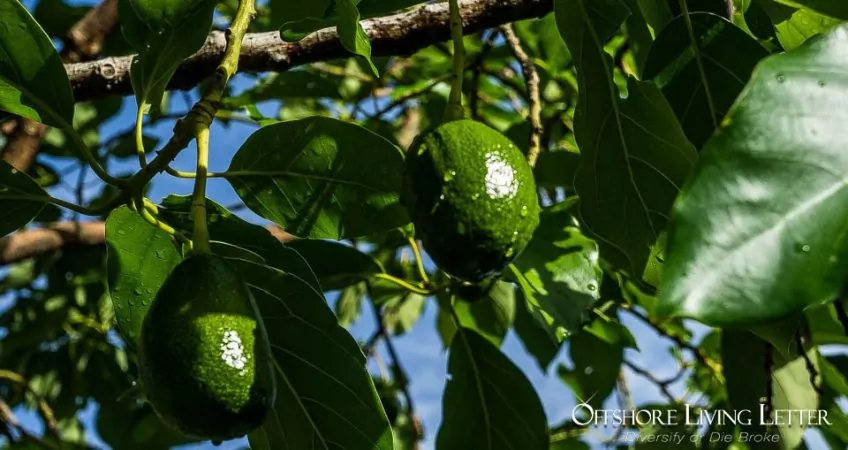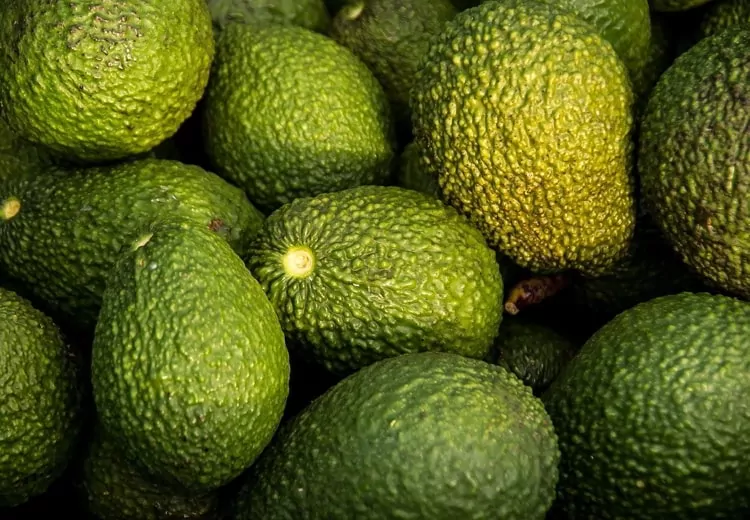
New Organic Avocado Plantation Investment Returns 16% Annually
Panama Avocado Plantation Sold Out—This Is Your Last Chance To Get In
As I remind you often, when you find a flag-planting opportunity that interests you, you should take advantage of it while it’s available because, in the offshore world, things change.
Usually, when I make this point I’m referring to residency programs, banking opportunities, or second citizenship options.
Today, I’m talking about a real estate investment opportunity that is being closed out. The developer has this week put a deadline in place, meaning a small remaining window to act.
For my money, an agricultural investment is the best you can make right now. The challenge is finding one that doesn’t come with a seven-figure buy-in and that makes sense for an individual investor like you and me.
About four years ago I identified a group in Panama focused on turnkey organic agricultural opportunities ideal for the individual investor. In the years since, this group has launched and fulfilled a series of plantations, including their most recent organic avocado plantation.
Every previous plantation has sold out, and this week the developer got in touch to tell me that the avocado plantation is, likewise, about to sell out. The group has agreed to continue to make the opportunity available to Live and Invest Overseas readers through June 30. After that date, it will no longer be possible to participate in this offering.
Avocados Rising

The retail demand for avocados is soaring, according to a recent Bloombergreport. Demand is up in both the United States and China in particular.
Meantime, wholesalers are concerned about supply. They worry about labor and drought risks in California and Mexico, where the majority of their current supply is sourced. Buyers, therefore, are actively looking for new sources of Hass avocados in particular, which is a key reason the developer in question chose to invest in an avocado plantation last year. His buyers told him directly what to plant.
The developers worked with their expert agricultural team in Panama as well as one of the biggest growers of Hass avocados in the world to identify a Hass avocado ideally suited for a plantation in Panama. They named it the “Panama Hass.” The fruit has all the qualities of a Hass avocado… and the tree is tailored to Panama’s climate.
The structure of the opportunity is the same as it has been for the group’s previous mango, lime, and guava offers. Investors own the land. The farm management company plants then manages the trees (and intercropping) for the investor.
Revenue is split after an annual crop care fee of US$6,500. The plantation owner (you) gets 70%, the management company 30%.
Invest US$45,000 For 16.2% IRR
What that means in dollars and cents is that an investment of US$45,000 (plus closing costs associated with titling the individual parcels) yields a return of a bit more than US$10,000 per year starting in year five, the first year of full production (a partial crop is projected in year four).
That return increases 1.5% to 3% each year in the projections based on expected increases in the market price for the harvests and additional production from the trees, as they don’t fully mature on the production side until around year 20.
The internal rate of return (IRR) over 30 years works out to 16.2%.
Sizing Up The Risks
Of course, no investment comes without risk. However, many of the potential risks for a project like this one are mitigated in this case.
Development risk is low. This company has a well-proven track record. This group is implementing organic fruit plantations in Panama like the pros they are. The avocado plantation is their fifth large plantation in Panama, but they also have smaller plantations they operate at the corporate level. They also have operations in Peru, which gives them additional clout when negotiating to sell their fruit from all their operations.
Their mango plantations have been installed. The mango trees are growing, and the first intercropping revenue was paid earlier this year. Road, fencing, irrigation, and other infrastructure is in place.
They are doing it all again for the organic avocado plantation.
Sales risk of the harvested produce is low, as well. The management company has relationships with buyers in the United States and Europe. The two main organic produce wholesalers in the United States (one on the West Coast, the other on the East Coast) visit the current plantations at least once a year to keep up on progress.
Remember, the one buyer is the guy who encouraged them to start the avocado plantation.
Weather risk in Panama is low, as the country has no real natural disasters. It’s outside the hurricane belt. No tornados come through. Some mild earthquakes can be felt in Panama, but they don’t bother the trees.
One potential risk with any agricultural undertaking is drought. While Panama gets plenty of rain most of the time, changing global weather patterns make it prudent to have an alternative source of water rather than relying on rainfall.
That’s why the group behind these offerings only buys land with year-round rivers either running through or adjacent. In addition, they build reservoirs to store water just in case. Drought risk is minimal, unlike in California where the Hass avocados first were grown and are still produced.
Pest risk is another general agricultural concern. The developers are planting neem trees around the plantation to help reduce insects coming into the property. Proper maintenance work also helps to keep pests down. The best strategy, though, is not killing off all the animals that eat the pests… another benefit of an organic operation.
Country risk is another consideration when investing overseas. Panama is a stable, prosperous, growing nation. It has no standing army, and its Canal produces an inordinate amount of cash flow per inhabitant, allowing the government to invest continually in infrastructure and other improvements.
Currency risk is moot in Panama, as this country uses the dollar. While that takes away an advantage that some investors may be looking for in the form of currency diversification, it also eliminates the risk of your returns being eroded by currency losses.
Tax-Free In Panama
One other benefit to Panama is its approach to taxation. Panama taxes on a jurisdictional basis, meaning only income generated in Panama is taxed in Panama. This is the case whether you’re resident or not.
In addition, Panama also offers many tax incentives, including one that allows agricultural businesses to operate tax-free until revenues break US$350,000 annually.
This means that your personal plantation is tax-free in Panama unless you buy more than a dozen hectares (which would mean annual revenues to you of more than US$350,000). In this case, you could simply title the land in more than one entity.
Agriculture as an investment class is something you want in your portfolio. It offers one of the best risk-adjusted returns possible today. In the case of this avocado plantation opportunity, it also means a hard asset. You own the land.
Additionally, this is a chance to create a legacy revenue stream for your children and grandchildren. While the IRR projections are calculated over 30 years, avocado trees have a productive lifespan of 60+ years. These trees could generate cash flow for generations of your heirs.
As I explained above, you have a very limited chance now to do the same. This plantation is being closed out as of June 30.
Get in touch here to take your position in advance of that deadline.
Lief Simon



